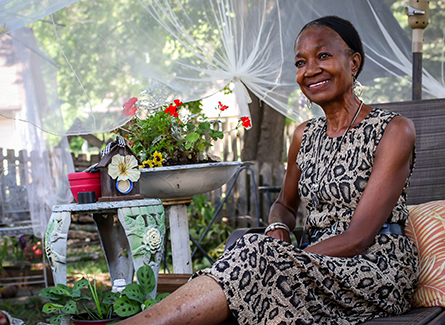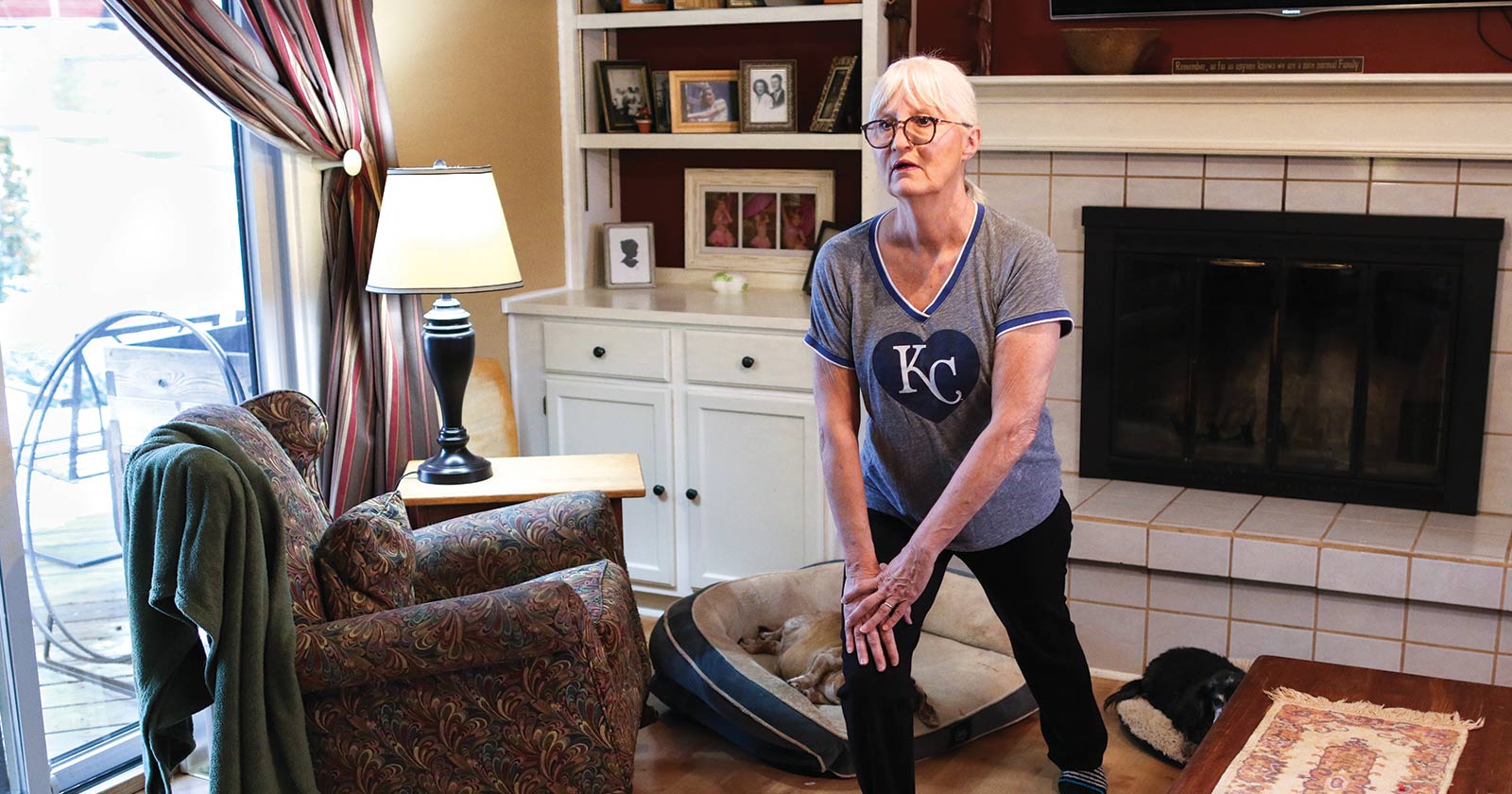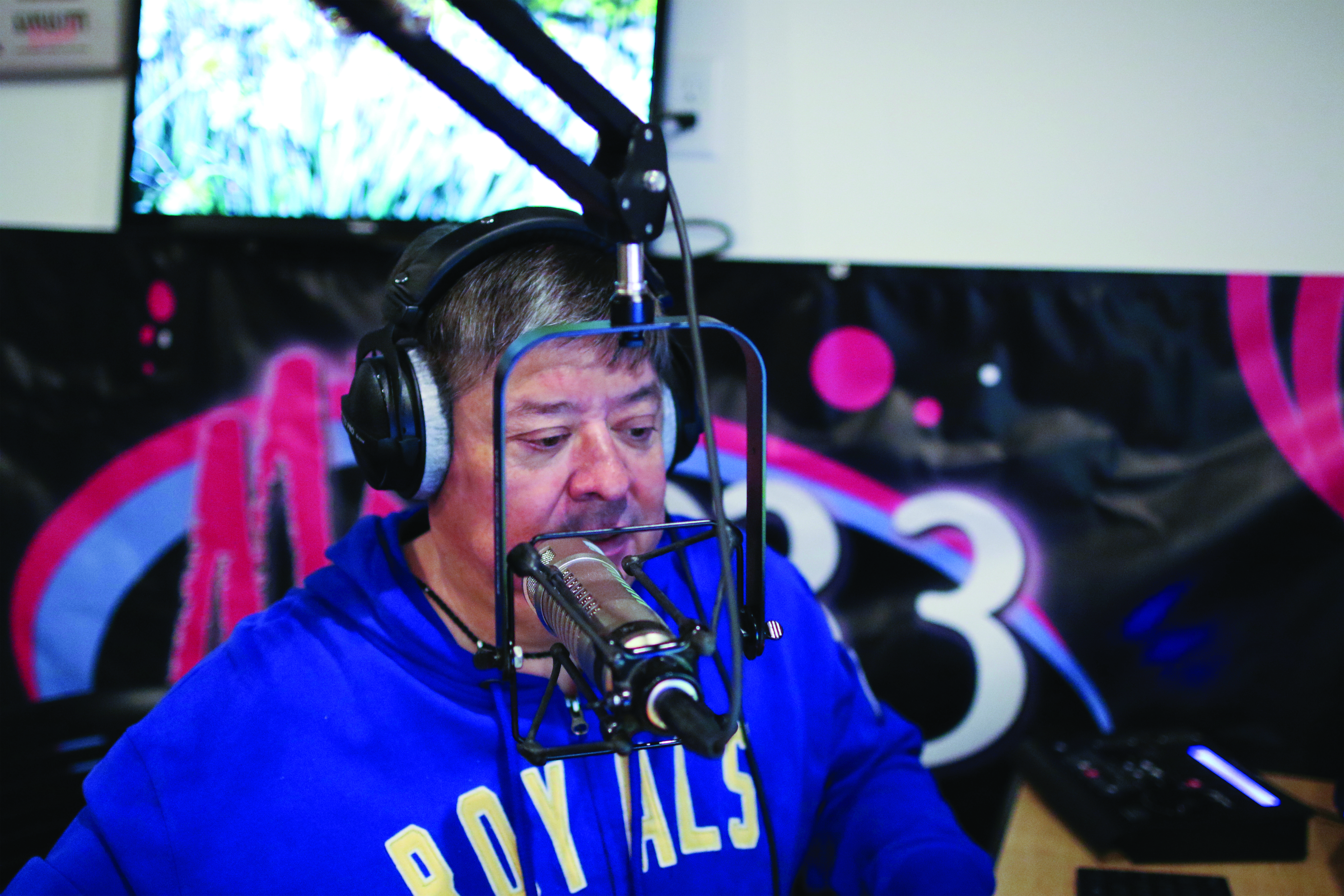In Donna's Own Words
"It is what it is. I got it, it’s early, let’s treat it and let’s move on.”
Watch Donna talk about her experience with triple-negative breast cancer and how staying positive and active helped her stay focused on the future.
Like everyone who moves to a new city, Donna and Marvin Brooks had grand plans when they relocated to Kansas City from St. Louis two years ago. They moved to be closer to family and looked forward exploring their new city.
“But good ol’ cancer messed up our plan,” Donna said, grinning. The couple moved to the area in May, and Donna was diagnosed with stage 1 triple-negative breast cancer in August. A mammogram, sonogram and
biopsy at North Kansas City Hospital’s Women’s Center detected three masses.
“At first, I didn’t understand what triple negative meant,” she said. “Usually, in the medical field, when they say something’s negative, that’s a good thing.” She soon learned her breast cancer was one of the most aggressive and difficult to treat.
“Triple-negative breast cancer lacks expression of the estrogen, progesterone
and HER2 receptors,” explained Deepti Satelli, MD, Donna’s oncologist. “It‘s one of the least common cancers, resulting in about 200,000 diagnoses each year.”
No Room for Fear
Donna wasn’t yet connected to a healthcare provider. That’s when Debbie
Ball, BSN, RN, NKCH’s breast nurse navigator, stepped in. She confirmed Donna’s choice in a Meritas Health primary care provider, who set up her first appointment with Surgeon Patrick E. McGregor, MD.
“I wasn’t afraid of the cancer,” Donna said. “It is what it is. I got it, it’s early, let’s treat it and let’s move on.”
Donna had two options: a lumpectomy with chemotherapy and radiation, or a mastectomy. “I chose a lumpectomy because the cancer was stage 1,”
Donna explained. “Plus, the tumors were small, and only one breast was affected,” she added.
After surgery, Donna began an aggressive chemotherapy regimen, followed by 20 weeks of radiation.
No Hair, Don’t Care
“Losing my hair was the best part,” Donna laughed. “That was one less maintenance thing. But, you lose the hair on your head, your eyebrows, in your nose ... everywhere.” Fortunately, other than losing her hair, Donna experienced minimal side effects from treatment.
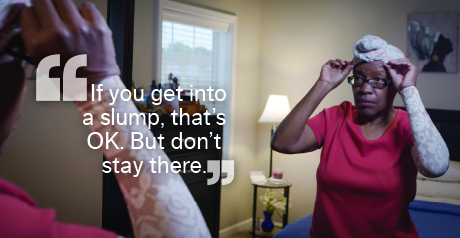
No Time for Negativity
As Donna went through treatment, she made it a point to avoid negativity, stay active and pray often. “When you are diagnosed with cancer, you can’t engage with negative people or circumstances,” she advised. “This is a time when you must be selfish and care for yourself.”
Her strong faith and a good family support system helped her stay positive. “Find a person to talk with,” she said. “Have a regular person and a person who has been through cancer. They will balance you out.”
Still, Donna admits she had her share of so-so days. “I had days when I had to lay down, so I did,” she recalled. “But, I got back up. If you lay around, your situation starts to consume you.”
Donna kept her strength and spirits up by walking the halls in her senior living center. “I was on lockdown per se because I couldn’t be around sick people, so I walked inside,” she said. “At first, I couldn’t make it down the hall without being out of breath. But, I kept going. I walked every day until I was able to walk four laps at a time.”
She also continued the daily tasks of life: doing laundry, paying bills and going to her grandkids’ activities whenever she could.
“If you get into a slump, that’s OK,” Donna said. “But don’t stay there. You are supposed to beat this cancer. It’s not supposed to beat you.”
A New Normal
“My medical team was awesome,” Donna said of the care she received. “Everyone had a positive attitude and treated us with respect. No question was too small.”
With treatment behind her and a clean mammogram this past June, Donna is setting new goals. “I want to enjoy life with my grandbabies and my kids,”
she shared.
“I’m learning to accept my new normal,” she added. “I’m not accustomed to chemo brain and not being able to multi-task. Once I get this new normal down, I’ll be good to go. Actually, when I wake up every morning,
I’m good to go, so I’m good either way.”
Related Articles

March 9, 2020
3 Sneaky IBS Triggers
For people with irritable bowel syndrome, spring may spark a flare-up in symptoms
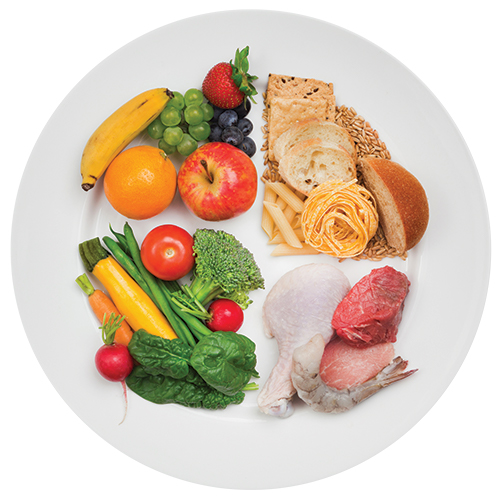
May 31, 2024
5 Nutrition Tips for a Healthier Lifestyle
Healthy eating and proper nutrition play a big part in maintaining good health. Here's how to improve your nutrition habits.
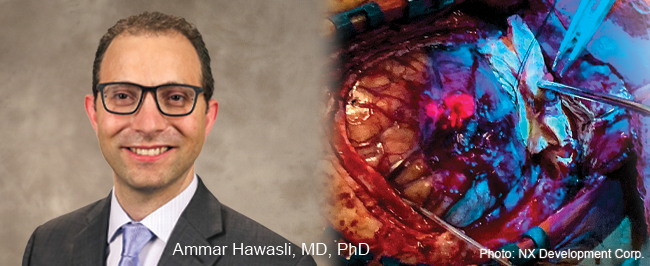
July 8, 2021
5-ALA Fluorescence Guides Neurosurgeons for More Complete Resections
Neurosurgeons Ammar Hawasli, MD, PhD, and Stephen Reintjes Jr., MD, with Meritas Health Neurosurgery, are now using a progressive treatment that allows for the more precise removal of malignant gliomas and glioblastomas.
